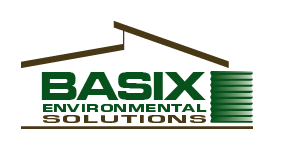What is BASIX?
The Building Sustainability IndexThe Building Sustainability Index, or BASIX, is a web based planning tool designed to assess the potential performance of residential developments against a range of sustainability indices. The first stage of BASIX focuses on Water and Energy, for which targets are set. Landscape, Stormwater and Thermal Comfort indices are also activated because information relating to these indices impacts on water consumption and greenhouse emissions. BASIX asks for information about a proposed development, such as site location, dwelling size, floor area, landscaped area and services. BASIX compares the proposal to the average of existing housing stock. The proposal is scored according to its potential to consume less potable water or energy than the average existing dwelling. Building applicants will be responsible for undertaking a BASIX assessment for each residential development proposal as part of the development approval process in NSW. The BASIX tool is accessed via the BASIX website, www.basix.nsw.gov.au. NSW Government Targets for Sustainable Residential DevelopmentThe introduction of BASIX into the development approval process reflects the commitment of the NSW Government to water and energy conservation. In 2003, the Government established targets to reduce drinking water use and greenhouse gas emissions for all new residential developments in NSW. Under BASIX new housing in NSW must be designed and built to use 40% less water and produce 25% less greenhouse gas emissions than average NSW homes of the same type. The target for greenhouse gas emissions will increase to 40% from 1 July 2006. These targets represent significant yet readily achievable savings in water use and greenhouse gas emissions by residential dwellings in NSW. Developments are also required to meet requirements in BASIX relating to the thermal performance of the building envelope. This requirement is aimed at ensuring that homes are not overly reliant on artificial heating and cooling in order to be comfortable. BASIX is the mechanism for ensuring that new homes comply with the prescribed targets. The BASIX tool allows applicants to make a variety of choices in order to achieve the targets. How and when will BASIX be implemented?BASIX has been introduced as a mandatory component of the development approval process in NSW under the Environmental Planning and Assessment Act 1979, through the Environmental Planning and Assessment Amendment (Building Sustainability Index (BASIX)) Regulation 2004 and State Environmental Planning Policy — Building Sustainability Index (BASIX). Applications for certain residential development proposals which require development consent must be accompanied by a BASIX Certificate before they can be assessed and development consent granted. From 1 July 2004, development applications and complying development certificates for new single dwellings lodged in Sydney must be accompanied by a BASIX Certificate confirming compliance with the Government’s sustainability targets. From 1 February 2005, a BASIX Certificate must also be lodged with applications lodged in Sydney for new multi-dwelling development. The remainder of NSW will be subject to BASIX for all new housing from 1 July 2005. Additionally, from 1 October 2005, BASIX will also apply to alterations to existing residential development throughout NSW. What impact will basix actually have?The introduction of BASIX will result in more sustainable homes throughout the State, appropriately designed for the environment in which they are built, and which are comfortable for the people who live in them. Developments will meet BASIX targets if reasonable, well-established sustainable design features are incorporated into housing proposals. A typical development will meet the target for water conservation if it includes:
A typical development will meet the target for greenhouse gas reduction if it includes:
The implementation of the prescribed targets will result in a cumulative reduction in water consumption of 182,000 mega litres and a cumulative reduction in greenhouse gas emissions of 8.3 million tonnes over the next 10 years. These reductions will equate to respective savings of $182 million and $41.5 million to consumers across NSW. Combined water and energy savings for an average family living in a home certified by BASIX compared with an electric household are also likely to be in the order of $300 – $500 a year. |
 |
 |
|
|
|
|
|
|